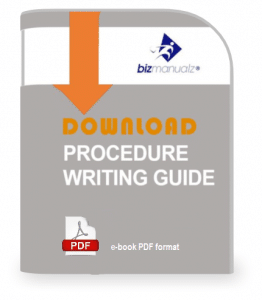How Can You Make Your Written Communication More Effective?

Although you might not be a good writer, you may have to write all the time if you are an entrepreneur or professional. You need to compose various types of correspondences frequently, such as internal memos, emails, direct messages, and client proposals to communicate with people in and outside the organization. How can you make your written communication more effective?
6 Tips for Improving Written Communication in Your Workplace
Whether you like business writing or not, written communication is often preferred over verbal since it provides the following advantages:
- It is time-saving. Whether you need a quick answer to an urgent question or to share an important message, you can do this faster when you send an email or direct message. It will take longer to schedule a meeting with the recipient or visit them in their office, particularly if they work in a different place. Learn to be a more productive writer.
- It serves as proof. When something is in writing, even just electronically, you have concrete evidence that you sent an important message and that the recipient received it. This will come in handy with critical documents, such as quotations, proposals, contracts, and project briefs.
- It is easier to reference. It is easy to misremember the details that you said or someone told you verbally. An email, direct message, memo, and other types of written communication allow you to find information that you are having a hard time remembering clearly or correctly. You can also share the details faster with another.
The Importance of Written Communication in the Workplace
Maximizing these advantages, though, depends greatly on how well you can write. There are books you can read to improve your writing and become more skilled in creating clear, effective, and accurate written communication. Otherwise, you’ll end up confusing the recipients of your messages and causing problems in and for your organization.
Additionally, effective communication plays a vital role in making smart business decisions and streamlining various processes. It is easier to coordinate and manage internal projects, collaborate with employees, and decide on timetables when everyone involved is on the same page in terms of objectives, responsibilities, and procedures.
You will also have better relationships with people inside and outside the company if your communications are easy to understand. You will have an easier time negotiating contracts, coordinating meetings, sharing ideas, and setting and achieving goals.
Improving Your Written Communication Skills
Whether you are confident with your business writing skills or not or want to help others improve in this area, keep these useful tips in mind:
Write for Your Target Audience or Recipient
Before you start writing, think about who you’re writing to or who will read your communication. This is a tip that is easily noticeable on the top freelance copywriters’ websites. These experts can connect with their audience successfully since they know who they are and write for them.
Keep your audience or recipient in mind as you write. Technical writing for engineers requires the use of different words from those in a memo for your production laborers. Consequently, an email for a client can be different from one you intend to send to a co-worker or team member. Always think about the recipient of your correspondence and choose words they can understand when writing.
Be Clear About Your Outcome
If you are writing business policies and procedures, make sure you know what you want the reader to do after reading it. Thinking about this from the start can help you create a clear, concise letter or message that will get the reader to act. And once you know what you want the reader to do, state this clearly in the first part of your communication.
Keep Your Writing Concise
To write effective procedures, try to keep it as short and concise as possible. Be straight to the point. Whether you are delivering good or bad news or providing instructions, state them clearly in your message. Also, avoid numerous words to state something that could be explained in less. Try to use contractions, remove prepositions, and swap -ion words with action verbs.
Additionally, break up the text into as many paragraphs as possible. This is because many readers tend to find heavy blocks of unbroken text overwhelming and cause them to skip most of what you have written. Try to vary your sentence lengths as well to maintain your reader’s interest.
Use Headings, Subheadings, and Bullet Points
When writing something long, break up long texts by using headings and subheadings. They help organize the correspondence and guide the readers as they pore over it. Headings and subheadings can also serve as visual cues that readers can use to re-read or refer to important sections.
Also, don’t forget to use bullet points. By grouping several key ideas together and writing them as a list, you provide a visual break in your text and prevent the tediousness the reader may feel as they wade through sentence after sentence. Keep in mind that you don’t have to write complete sentences for everything you want to say. If you can turn some content into lists, do so.
Avoid Using Jargon
Avoiding Industry-specific jargon, buzzwords, and acronyms are one way management professionals can improve business writing, but it doesn’t mean you should rely on or use them whenever you can. When you use too many buzzwords, your writing will look generated, insincere, and poorly thought-out. Since one of your goals is to keep your message clear and concise, try to use plain speech whenever possible. And if you have no choice but to use jargon, incorporate them sparingly and explain them.
Proofread Documents or messages Before Sending Them
No matter how long or short your correspondence is, it can be easy to miss grammatical errors and typos when you write it yourself. Whether the typos or grammatical errors are unintentional or not, if your written communication is full of them, you might come across the reader as careless or even not too sharp.Writing well so it’s easier to read is an important skill. Therefore, it is important to re-read your content before sending it. Use a grammar checker to proofread it to ensure you are sending an error-free correspondence.
There are free grammar checking tools you can use, so don’t skip this part. If you wrote something long, ask another person to read it and give you feedback. Find out if they understand everything. If something isn’t clear to them, rewrite the sentence or paragraph. Don’t forget to use spell check since it can also be easy to miss misspelled words.
Producing written communication is one of the top skills everyone must have in this time and age. Because of this, continue working on your own and with your team to hone your skills for your personal and career growth as well as the success of your company.
More Effective Written Communication
If you are an entrepreneur or professional, you may have to write all the time, even if you are not a strong writer. Use documents that help writing policies and procedures. And to connect with people inside and outside the firm, you must frequently create various sorts of correspondence, such as internal memos, emails, direct messages, and client proposals. Whether you are confident in your business writing skills or wish to assist others improve their writing, keep these helpful hints in mind for more effective written communication.
AUTHOR BIO: Hisham Wyne is an award-winning copywriter, brand consultant and content creator based in Dubai. He has over a decade’s experience in helping brands get their messages right. From crisp web copy and zippy brochures to in-depth company profiles and analytical annual reports, Hisham makes words work for you – so you can sell better, gain visibility, and give your brand a unique voice. During his time in the Middle East, Hisham has collaborated extensively with blue-chip companies including Twitter, Microsoft, LinkedIn, Harley-Davidson and Aston Martin, and helped government concerns such as the Dubai Internet City, in5 and the Dubai Design District.
















nice one